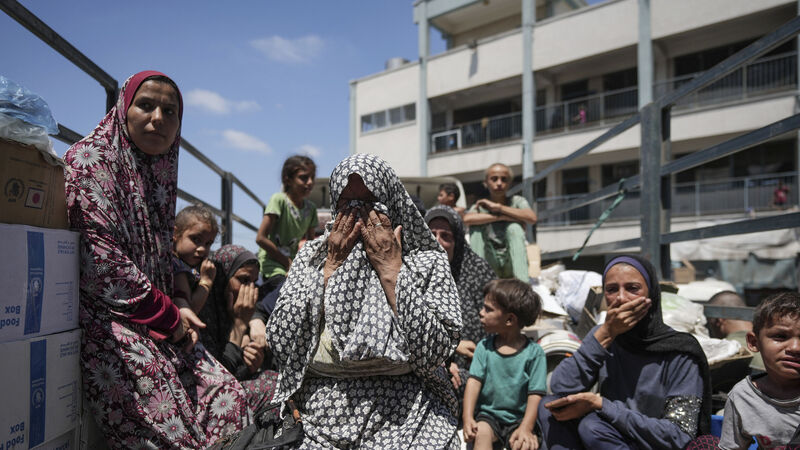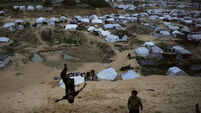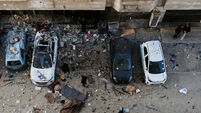Conflicts all over the world are having a devastating impact on women's rights

Palestinian women weep as they are evacuated from their shelter last year. File photo: AP/Abdel Kareem Hana
2023 was one of the most violent years since the end of the Cold War, according to the Peace Research Institute in Oslo. While data for 2024 is not yet available, the picture is unlikely to be hugely different. The shocking level of deaths in Gaza alone is enough to mark 2024 as a violent and deadly year.
The impact on all civilians in conflict is catastrophic, bringing generational disruption to people’s lives including death, unbearable and life-changing injuries, trauma, displacement and gender-based violence. We are currently seeing this all across the world — in Ukraine, Palestine, Sudan, the Democratic Republic of Congo, Haiti, and Ethiopia.
















